Healing Generational Wounds
A conversation on shame with Jason Rosario and Aaron Ramey
Escrito por Made of Millions Team
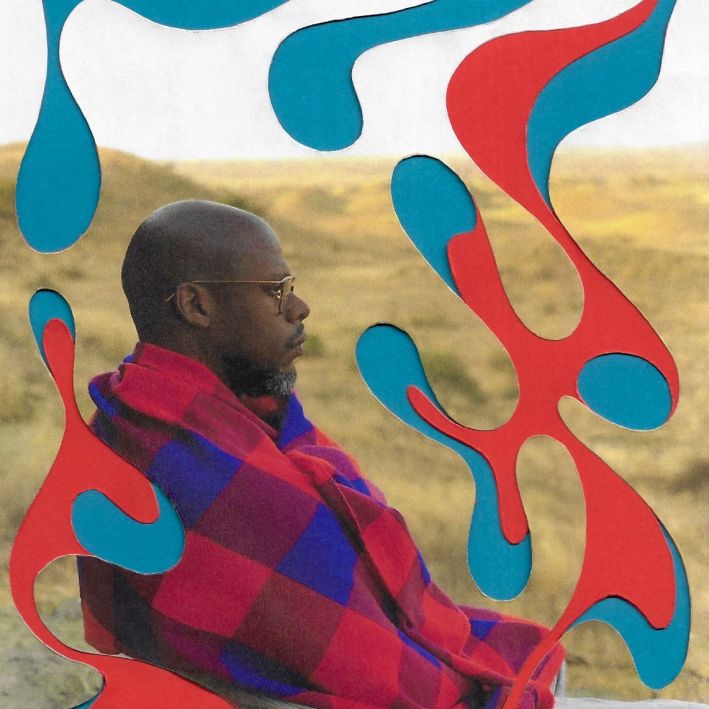
01 Jason Rosario is Chief DE&I Officer at BBDO, founder of Lives of Men, and a Made of Millions board advisor living with depression.
02 For our Shame Shouldn't Be a Symptom campaign, Jason spoke with fellow advocate and artist, Aaron Ramey, about combatting shame and questioning its causes.
03 All collage artwork from our campaign was created in collaboration with Ian Woods. Find him on Instagram at @ian___woods.
As an Afro-Latino native New Yorker, Jason Rosario has spent his life navigating spaces that expect a certain version of him. Someone strong, someone together, someone in charge.
While he lives up to these expectations, he’s also passionate about questioning them. As an advocate, he speaks openly about his experiences as a Black man in the United States, and how the modern realities of white supremacy and masculinity create deep rooted mental health challenges. He is constantly asking himself and others: How can we embrace vulnerability more openly and honestly? How can we combat the shame instilled in us, in order to stop cycles of internal and external harm?
For mental health awareness month, Jason sat down with fellow advocate and artist, Aaron Ramey, for a candid conversation about shame, depression, balance and Black masculinity.
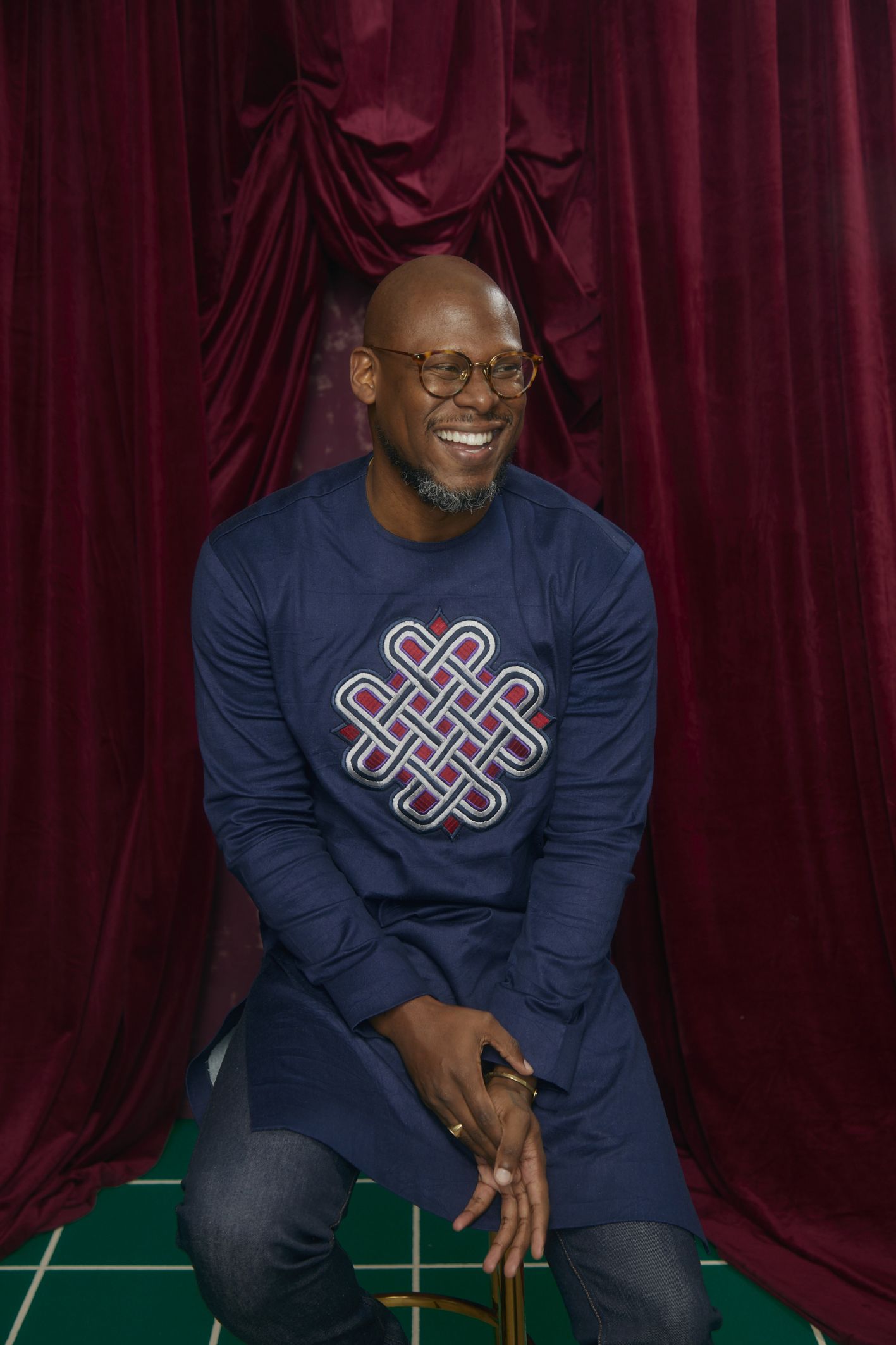
Hey Jason, let’s kick off with an intro. Tell me about where you’re from, where you’re at now, if you’re diagnosed with any type of mental conditions.
I was born and raised in New York, specifically in the Bronx. I’m the oldest of seven kids. My family is from the Dominican Republic, so kind of a traditional New York City upbringing in the 80s and 90s. I grew up with hip hop, the Internet and all that. I'm currently in Brooklyn, New York and I have been here for a bit.
I'm the chief diversity officer at BBDO, which is a creative agency based in New York. As far as my conditions, I have never been clinically diagnosed with depression or anxiety. As I became more attuned with how I was showing up in the world, I knew that there was something going on that didn't feel right. When I started to dig in and do my research, especially spiritually, I felt like something was going on. I decided to go to therapy to uncover these things and realized that a lot of what I was feeling could be classified as depression.
That was lesson number one, that depression doesn't always manifest in the ways that we think it does. We picture people moping around and looking despondent. Sometimes it shows up in being hyper productive and super locked in at work. For me, I realized through therapy that I was trying to make up for things that I felt were missing in my own life. So that's what got me started on this journey of really understanding my depression and anxiety.
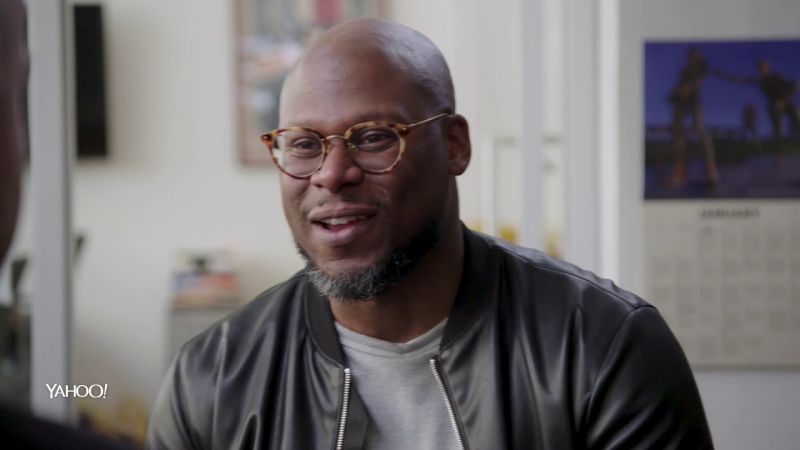
Jason Rosario | Dear Men
Jason Rosario's Yahoo series Dear Men explores the evolution of manhood through candid conversation.
I live in Bedstuy, Brooklyn so we’re not far from one another. Being from an East Coast city, the largest in the country, and an area where you see everyone going to work, that can be intense. Does that build moments of anxiety, or make you feel like you have to compete and operate at a certain level?
That's such a great question, especially for those of us who are constantly on the go. You don't realize that you're waking up in the morning and running from the moment you wake up. You get dressed, you're eating breakfast on the go, you get to the office, you’re eating at your desk. It’s 12–14 hour days, then you're running somewhere after work because you want to go to the gym or whatever. The constant, hectic nature can weigh on you.
I think for those of us who live in New York or other major cities, we feel like that's just the way it is. That's what we need to do in order to survive and be successful. But that's not necessarily the case. I think for me, going back to therapy and leaning on my spiritual practice, I learned that everything around me is everything around me. As long as I'm centered and not letting my pace be dictated by the world outside of me, that's when I start to feel more in control.
For a really long time, I felt like I was on autopilot. I think a city like New York reinforces attributes that contribute negatively to mental health. There's nothing wrong with being hyper focused and super ambitious, but when that's all that's reinforced — whether that's because of your social circle or what you see on TV — I think that becomes negative over the long term.
Always being on the go, it presents a sense of competition. You talk about your spiritual practices. Were they new practices you learned as you grew and expanded your intake, or was it something learned from your community, parents or grandparents?
My family's Caribbean, from the Dominican Republic, so we're rooted in a lot of different types of spirituality. When I leaned into it more, it evolved to include different types of modalities. The more you travel, the more you learn about the world. So I learned about Eastern philosophies and about growing up Catholic.
There are also some really ancient African traditions. So when I say my spiritual practices, all of that is wrapped in meditation and prayer and rituals. It is something that I've always grown up with, it's just evolved to better serve who I am today.
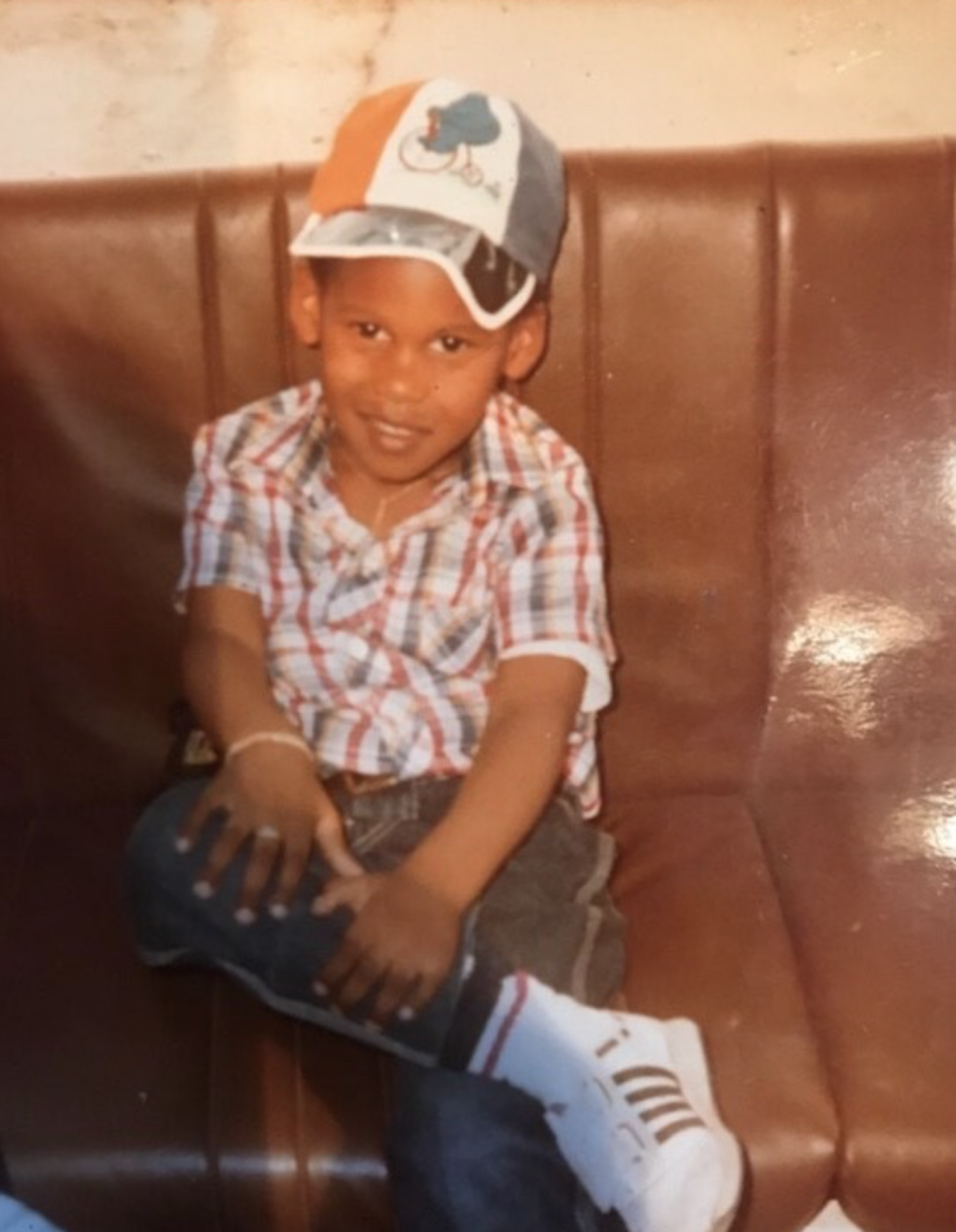
I'm glad you made that point about African traditions because there's a lot that I'm starting to learn that I wasn't taught. I'm African-American, so my parents and all my grandparents are from the South — we don't know anything beyond that. We don’t know our connection or lineage to Africa, so we don't really have the teachings, the wisdom, or the healing rituals that came from there.
I've learned that some of my friends who are Haitian, Jamaican, Puerto Rican, Dominican, who had settled where slavery had landed them, there's a lot of teachings that are still left over. I think it's really interesting how our community already had, through ancestry, an infrastructure for healing these things. I think it's really interesting to see that come forward now. I start seeing more people celebrate practices like hoodoo and voodoo, and more ritualistic birthing practices, all coming from African traditions.
Growing up, how much of that played a part in helping you deal with everyday anxiety? How did those teachings help you move forward and heal yourself?
Growing up with that experience was both negative and positive. Negative because we come from a culture that doesn't necessarily believe in therapy. It doesn't reinforce seeking help from someone that's not inside of your family or the church. Oftentimes, when I would have conversations around going to therapy, it was just like, well you should be praying more and leaning on those traditions. As opposed to casting a wider net and saying, I can lean on those traditions, but I can also seek help outside of that.
So it was negative in that way because it just reinforced this stigma around mental health. But then on the other side, it was positive because it gave me other outlets. Things that I would learn every Wednesday night at therapy, whether it's writing in my journal or meditating, I would then reinforce those tools with some of my own kind of beliefs and traditions, and that really helps. It's important to acknowledge that it was both negative and positive.
We're all individuals, so we need some type of combined practice. I don’t think there’s one way to heal or one way to deal with depression and anxiety. You say that there was this built in shame inside the culture. Do you feel like you internalized that more than you should have because there was a push to not go out and find other ways to cope?
I think shame is such an interesting concept because a lot of it, especially within our community, is rooted in white supremacy. Going back to the time when our ancestors were brought to the islands or this country, we were separated from some of these healing practices, and from our culture and rituals. In order to practice them, we had to subvert them and practice them under the surface. Any time that those practices were revealed, that was a life or death moment for a lot of our ancestors. I'm sure that there was shame attached to that not only from a safety and survival standpoint but also from an adaptability and acculturation standpoint.
If you think about that and extrapolate it forward, of course that's internalized in all of us. As we evolve and as we become who we are, shame is such a powerful component to how we show up in our lives, and how we manage that is equally as important. So absolutely I think shame has been something that I've had to deal with. And then also the shame of admitting to the world that I may not look as put together as perhaps the community views me. There's shame in that because you always want to be strong. You always want to be viewed as a leader and as a pillar of your community.
Then on top of that, the stigma of being a man. The fact that we as men have to be stoic and not show emotions. All of those things combined really reinforced shame when I was starting to be more vocal about the ways that I was struggling with mental health.
I see a lot of the work you’ve been doing around healthy conversations about masculinity, and for black men specifically. I think that's great. The reinforcement you position for black men, creates a new narrative and model for men to look up to.
I think a lot of our families, being black families, wanted their kids to be positioned in a way where they can have a foot up in the world. So we had to be perfect because we had to be better than our parents. It was always instilled some way, somehow. I love seeing you create these options to build strength, but to also build a place of vulnerability, which I think builds even more strength.
Did you have any kind of male figures or father figures that helped push you more towards finding different ways to deal with trauma, vulnerability, or anxiety?
One of my uncles was a good example, but he lived in Jersey and wasn't always around. I don't blame him for that, it's just that he had to find his own life. Outside of that, I didn't have too many positive male role models that I could look up to.
I often say this in my talks or even in my writing that I had to learn how to be a man. Either by looking at men that weren't necessarily doing the right things and then deciding to do the opposite, or by observing the women in my life and how they reinforced masculine attributes and behaviors in me. The more I did that work around masculinity, the more I realized that I couldn't do that work without also embarking on a journey of self discovery and understanding myself.
There's a book I’d encourage everybody to read called We Don't Want To Talk About It by Terrence Real, and in that book he makes the case that our mental health issues are closely intertwined with our issues around toxic masculinity. When you see men acting out, whether they're womanizing or being violent, those behaviors are products of something else that happened before that. Stuff like emotional repression, or that at some point in that man's life he was told that boys don't cry.
All of that starts to manifest in what we're now calling toxic masculinity. I think that's why it's important to have these conversations. You even said in the lead up to your question that vulnerability leads to more strength. And when you think about the love that we all want as human beings — forget about men or otherwise — the key that unlocks that love is vulnerability. You have to put your heart on the line and open yourself up, otherwise you’re never going to receive anything.
I think it’s great that we now have men like yourself who are aware that there are breadcrumbs we can leave for young brothers. You also had men who were not necessarily trying to teach you how to be toxic, but how to act in a way that was “safe” so that you could operate in the world. They were building some security, but you were able to find security in your own way.
I started a project in Cuba called “I Can’t Apologize Anymore." I documented black, Afro Latino, and Latino men in Cuba. I started to see similarities in how we grew up and how we were taught to be men, but also saw ways in which they embraced each other that were very different from us.
We normally embrace each other with a dap and a hug. With them, I saw men hugging and kissing each other on the cheek. Showing pure emotion, even in their society that has a lot of toxic masculinity. It's interesting to see how men in different cultures embrace each other. You start to have a broader understanding of what masculinity can and should look like — a human experience.
You've talked about that as well. There's a cutoff where men stop having a human experience and are just boxed into how they should feel and how they should grow. How do you combat internalized shame? Do you have daily practices? Is it momentary? Do you have to call friends when something happens to get you back on track?
Any time thoughts of shame creep into my mind, I try to interrupt those as best I can. I started to build mechanisms into my daily life that will do that for me at times. For example, there's an app called I Am. You can set it up so that it sends you affirmations every hour. If I like one of them, I'll make it my lock screen to see every day.
The other thing I learned is that shame is rooted somewhere in your childhood. One day my therapist was like, why don't you choose one of your baby pictures that you really love and make that your screensaver? I mean, we all look at our phones a thousand times a day. Every time you pick it up, talk to that kid and be like, “You are loved. You are cared for. You are worthy.”
I think there's a study that says 90% of our thoughts are negative. So if you're constantly thinking negative thoughts, you have to intentionally interrupt those with positive ones.
Another thing that's been really helpful, is that my therapist told me to text her any time I’m having a negative or self-defeating thought. Whenever I write out the thought, I'm like, this sounds ridiculous. But I text it to her anyway because I think that's what she wants me to do. To take a moment and reflect on the thought. By the time I finish writing that two or three second text, I've already resolved it in my mind and I'm onto something else.
So I think put those little mechanisms in your daily life so that you don't go on this repeat cycle of “thought, feeling shitty about the thought, having another thought."

When did you start going to therapy? Was there a moment where you finally felt comfortable going? Or was it like a rock bottom moment?
I started therapy when I was going through a traumatic breakup. You know losing a job or grieving a loved one, these traumatic moments really shake you and make you realize oh, this path that I'm on is not the one. I’ve got to find something else.
For me, it was a breakup that led me to get help, and then I just started to do the work. I probably spent like two sessions talking about that breakup and then we moved on to talking about me, my childhood, and all of that.
It's been over 10 years that I've been in therapy on and off. I've had high and low moments. I don’t think therapy is one of those things that you do when the house is burning down. I would encourage everybody to consider therapy as a maintenance tool. The way you go to the gym or to get your mani pedis.
That's awesome. I feel like I don't have a therapist that I've felt comfortable enough to keep, but I've been to some therapy sessions and it's amazing having someone to lean on that's non judgmental and that gives you the tools to keep going. You also spoke about having applications and using different things like your phone-
I actually just got a notification right now.
Can you share it?
Yeah. It says, “I will get through this and will come out stronger.”
Condiciones relacionadas
I needed that. I think that was for us. I want to know more about the advocacy you’re doing with masculinity. I have a lot of young cousins and brothers who are my age and I would love to share it with them.
If I'm really honest with you right now, I'm not doing as much as I have in the past because it's so draining. When you're an artist of any kind and you're trying to create something meaningful, it’s going to take so much out of your soul. For me, I poured so much of myself into that work, I have to take constant periods of rest to refill my cup. There's also a couple of things that are happening right now that are contributing to that.
One, I just started this new position at BBDO. It's been six months, so I'm locked into that role. The second is, we all know what's been happening with George Floyd and Breonna Taylor and Ahmaud Arbery. And now we've got two more, Dante Wright and Adam Toledo. I quite frankly don't have the energy because I'm having to process this stuff at the same time, and then I'm also leading an organization. So for that reason, I'm not doing much, at least publicly.
What I am doing and I think what I'll always continue to do is hold space for brothers who want to link up or have a conversation. At the end of the day, when we do work so publicly, the impact on people that follow and engage with our work is marginal. They're already thinking about the things that we're thinking about. The real impact occurs when you're able to have a conversation with that brother on the corner of Fulton and St James and are like, yo, this is what's going on. And then you change that one life as opposed to changing the thousands of people that follow you. That to me is the real work.
That's kind of what I'm focused on right now. Trying to see and identify opportunities where I can impact on a one to one level as opposed to being more expansive in how I reach people.
I'm glad you spoke on that, having those interactions. It's important that you stay in spaces where you're held up and aware so you don't miss out on opportunities to have those conversations. If we stay mindful and invest in positive experiences for others, that's dope.
It's about filling our cup first.
For sure. Do you feel like there's anything else you want to add?
I want to bring us back to what's happening in this moment in society. We're all experiencing so much trauma almost daily. We don't have an opportunity to heal from one police murder before another one happens. Sometimes it happens on the same day. Not to mention, this pandemic that we've been dealing with, or the political landscape that we just came out of or are still coming out of. It's a lot.
I’d encourage people that are feeling a certain way to pay attention to how they’re feeling. Don't discount those feelings and try to push through them. Depression and anxiety don't always show up in ways that we think. Sometimes it shows up in you spending money that you shouldn't be spending with retail therapy, or by overworking yourself. So take a step back and really take stock of how you're feeling.
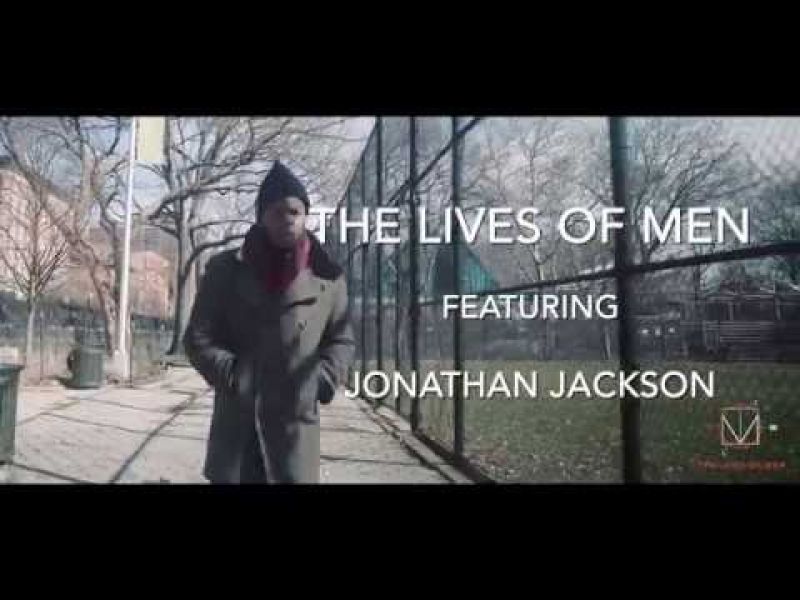
Jonathan & Jason Talk Mental Health
Blavity cofounder, Jonathan Jackson, sits down with Jason tp discuss how they've managed to succeed despite battling depression and anxiety.
There's three things that help me when it comes to feeling better. The first thing is to cook with real food. We're spending a lot of time at home, so go to the market, buy your veggies, come back, and cook. The act of cooking and measuring, all of that is intentional. It takes you out of your mental loop and puts you into something more present.
Number two is to get a journal. I bring my journal with me everywhere because it really is helpful to write down how you're feeling. Not only to help get it out, but to revisit and identify patterns that you might be constantly going through.
The third thing is to create. And I don't speak from the perspective of an artist or creative person, I’m speaking as a human. When we take something that is inside of us and manifest that into something that we offer the world, that’s the best gift. Some of our favorite albums came from a place of really deep pain. Take the opportunity to channel that, create something, and then offer it to the world. In that process, you'll feel better.
I'm glad those are the things you left us with. Thank you for your time and your work, and thank you for being vulnerable. I learned a lot in this conversation.
It's been my pleasure, Aaron.
Keep up with Jason on Instagram at @jason__rosario, and with Aaron at @aaron.babylon. All collage artwork from our Shame Shouldn't Be a Symptom campaign was created by Ian Woods.
Lecturas relacionadas
Apoya nuestro trabajo
Nuestra misión es cambiar la manera en que el mundo percibe la salud mental.



















